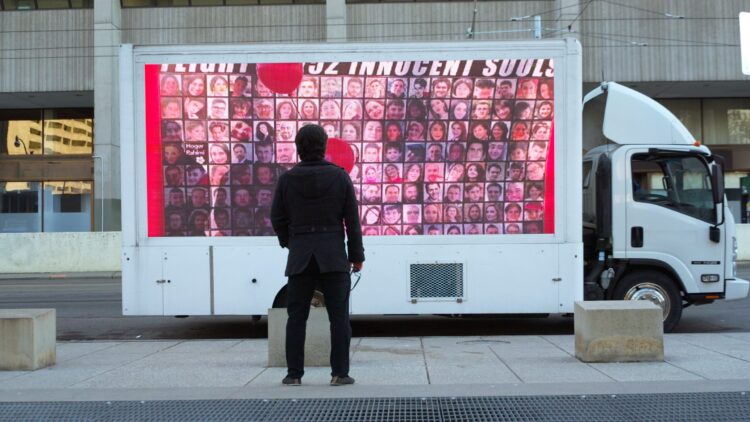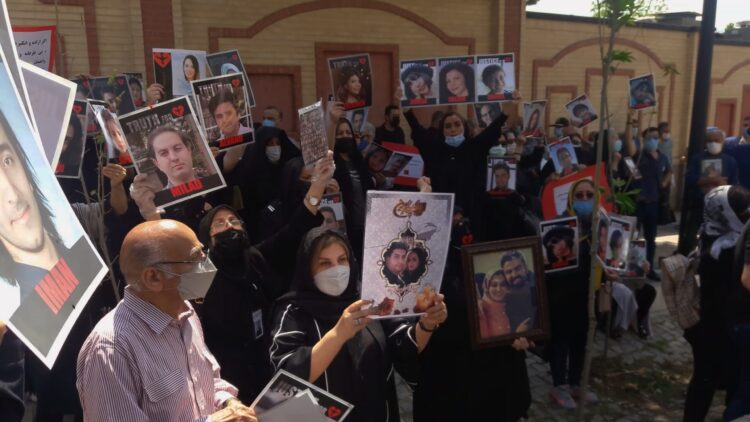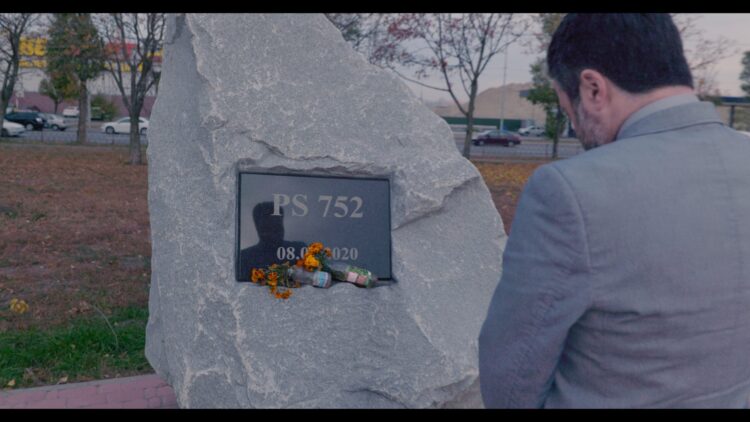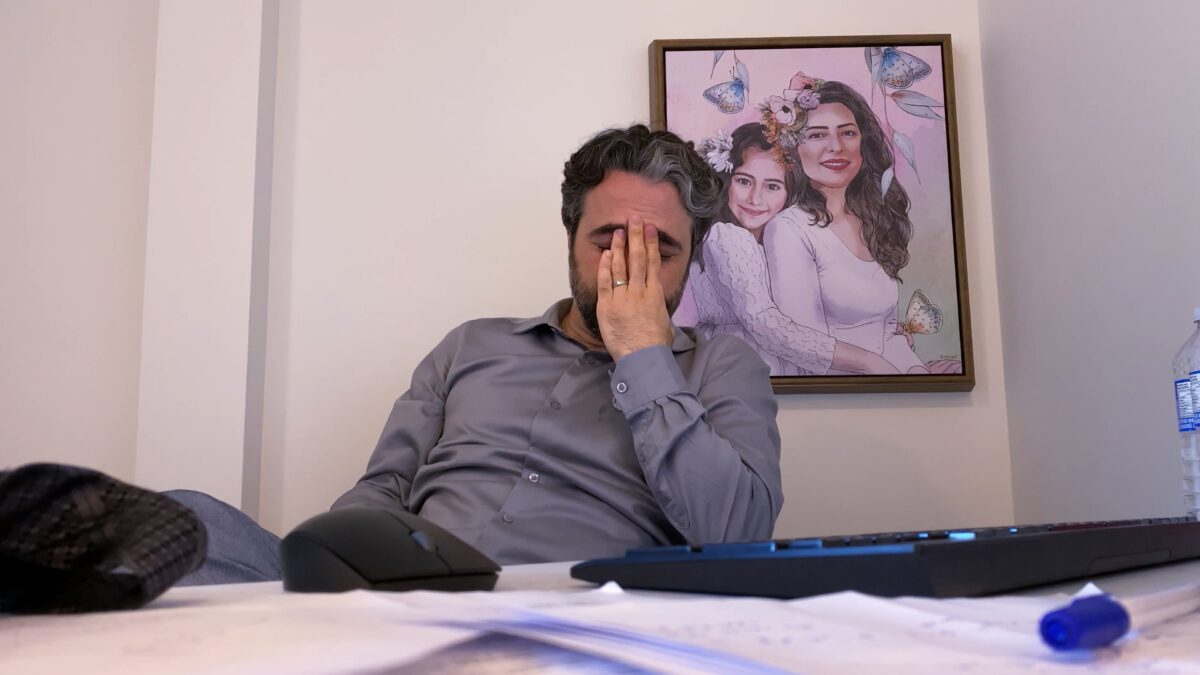On January 8, 2020, Hamed Esmaeilion’s life was torn asunder. Since then, he has struggled with loss, pain and agony.
On that catastrophic day, Ukraine International Airlines Flight PS752 bound from Tehran to Kyiv was shot down by an Iranian missile. All 176 passengers and crew were killed, including his wife Parisa and nine-year-old daughter, Reera.
They were among 57 Canadian citizens and 29 children whose lives were snuffed out by Iran.
Esmaeilion — an Iranian-born dentist, novelist and resident of the greater Toronto area — has been seeking a reputable investigation and an accounting of that tragic incident ever since then.
His quest is chronicled in Babak Payami’s heart-felt and moving documentary, 752 Is Not A Number, which opens in Toronto on December 9.
The timing of that doomed flight could not have been more unfortunate.
It took off from Tehran airport just hours after Iran fired a barrage of missiles at a U.S. army base in neighboring Iraq in retaliation for the United States’ airborne assassination of Qassem Soleimani, the commander of the Quds Force, an arm of the Iranian Revolutionary Guards Corps.
Apparently having mistaken the Ukrainian passenger plane for a U.S. cruise missile, Iranian gunners sent it plunging into the ground. At first, Iran stoutly denied it had downed the plane. But a few days later, it acknowledged its monumental mistake.

Hamed, looking forward to the arrival of his wife and daughter, spent part of that fateful day cleaning their house in Richmond Hill, a leafy suburb of Toronto.
As Payami’s movie unfolds, Hamed watches heart-rending clips of Parisa and Reera, sadly flips through family photographs and holds Reera’s plush toys. At times, he cries inconsolably.
Shortly after the crash, Hamed flew to Tehran to comfort his wife’s family and arrange for Parisa’s and Reera’s remains to be flown back to Canada for burial.
Seeking truth and justice, he became a key figure in the formation of the Association of Flight PS 752 Victims, a lobbying group which asked the Canadian government to take the case to the International Court of Justice.

“We want to know what happened,” he says.
As the crash site was immediately bulldozed, this may be a tall order.
Canada requested “accredited status” in the investigation, but Iran refused. As far as Hamed is concerned, the Iranian regime is trying to shape public opinion for its own ulterior motives.
Hamed claims that Iran struck the plane intentionally, though he never elaborates. The former Canadian foreign minister does not believe that “human error” was a factor in Iran’s catastrophic. decision, but he offers no rationale for his accusation.
Apart from a formal apology and a compensation package from Iran, Hamed wants an independent and impartial investigation of the accident.
At one point, he receives an unsolicited call from a unidentified Iranian who offers him vital information in exchange for $75,000.
Toward the close of the film, Hamed flies to Kyiv to confer with Ukrainian officials and leaves a bouquet of flowers at a plaque in memory of the victims. In Richmond Hill, he erects a stylistic monument in honor of Parisa and Reera.

Hamed is pessimistic that the unvarnished truth will emerge. The outbreak of Ukraine’s war with Russia solidifies his belief, leading him to the somber conclusion that this is a story with loose ends, and that the victims of Flight PS752 have been woven into the fabric of the tragic history of the Middle East.
